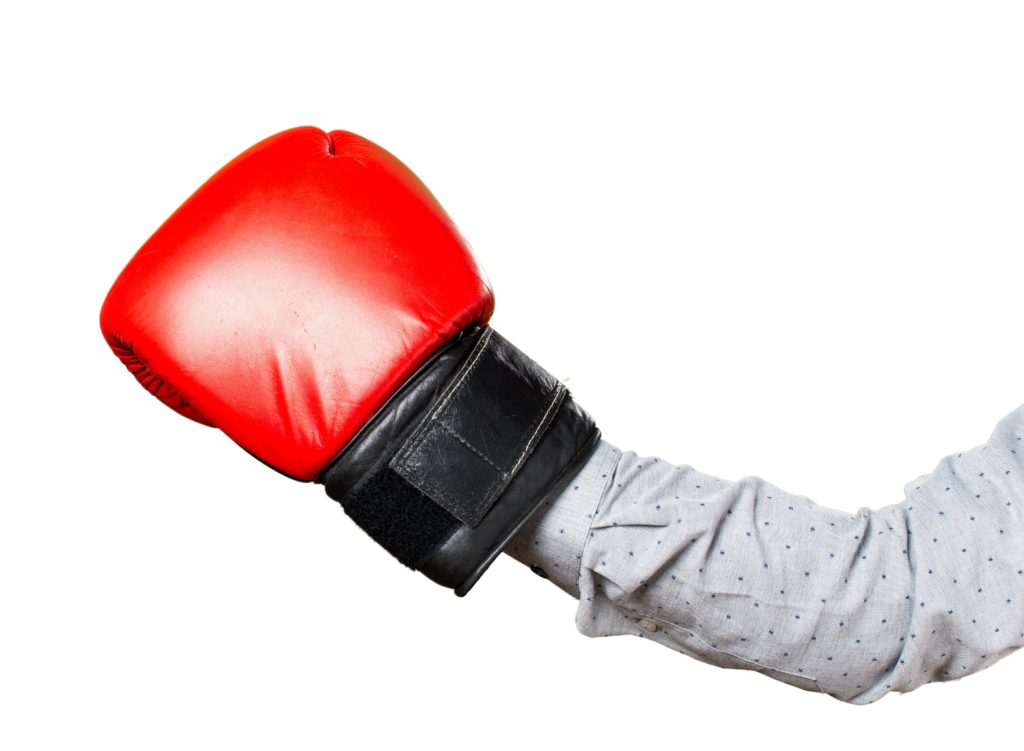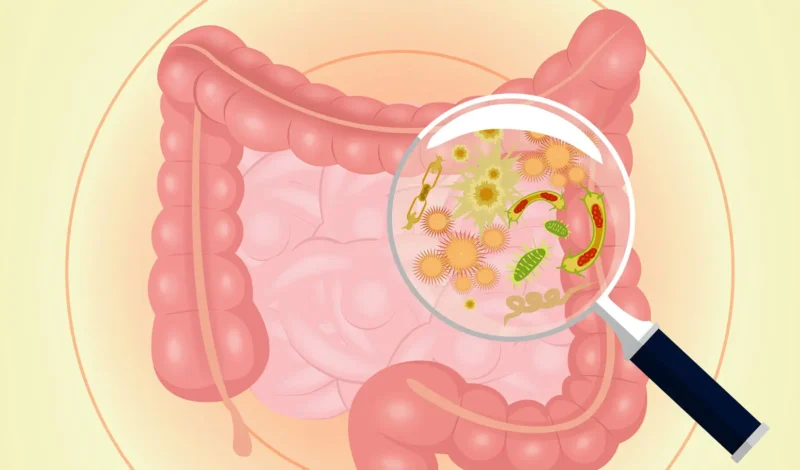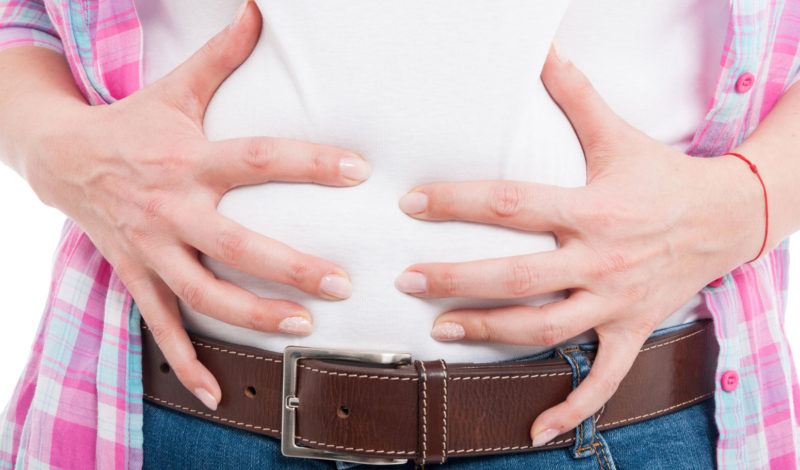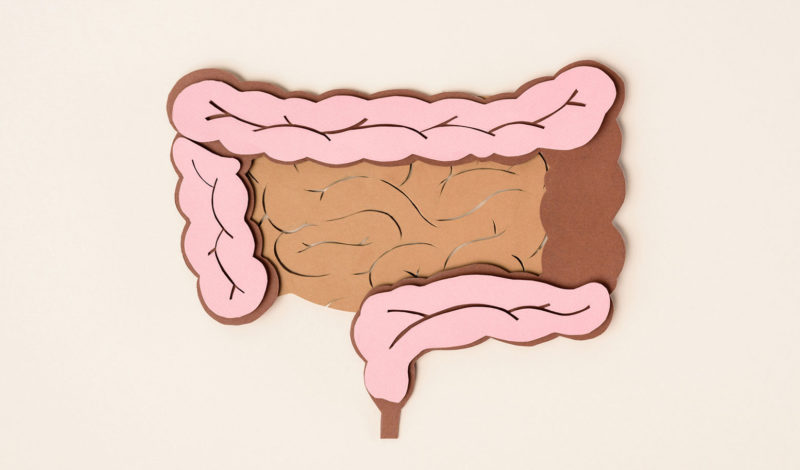Many people associate bacteria with contamination and the risk of infection. In our intestines, however, the microbes are quite welcome: [...]

Intestinal bacteria – the superheroes in your body
They crawl and teem and keep crawling everywhere – bacteria. Over 100 trillion of these little things live in your body and most of them in your digestive tract. The technical term is microbiota. This is the community of all microorganisms living in and on your body. There are good gut bacteria and bad intestinal bacteria.
Unfortunately, bacteria are often demonized and seen as pathogens. Anyone who has ever had salmonella knows about their devilish effects. Sure, there are lots of bad bacteria. But most of them are good to you or even more, they are the superheroes in your body, and each one of them has a different superpower. Your intestinal bacteria, for example, are the heroes of your digestion and your immune system. They make sure that you digest your food, they get the best out of it for you and fend off evil pathogens at an early stage. Their Kryptonite is bad nutrition, medication, alcohol, and stress.
no-repeat;left top;;
auto
Your good gut bacteria make your digestion easier

In the intestine, the nutrients are extracted and released into the blood. Everything that the stomach and small intestine cannot process is decomposed in the large intestine. Here even the last remnants are recycled. That’s what trillions of little superheroes, called bacteria, do. These bacteria thicken your food by drawing out their water and packing all the garbage with it. So, everything in the rectum comes out as a stool. Before you flush the leftovers down the toilet, the little bacteria get everything out of your body.
Our body cannot utilize some food parts, these would be excreted unused. But some of the superheroes can deal with it. For example, they can decompose the hardly digestible plant substances. You also know them as fiber that is found in \”good\” carbohydrates such as fruits, vegetables, and grains. While the bacteria break down these fibers with special enzymes, short-chain fatty acids are released. These ensure that you have enough energy available and that your muscles, heart, kidneys, and brain can work for you. The bacteria themselves need some of the short-chain fatty acids as energy, for example for the cells in the intestinal mucosa. And that’s okay because they do a lot of work for you.
Your good gut bacteria fight for you
Every superhero has to fight villains. Some of them come into your body from the outside, for example through food, while others are already inside you. Your intestinal flora ensures that these rogues can\’t harm you, because your intestines are the headquarters of your immune system. The names of the heroes:
They produce lactic acid to get glucose, the sugar, out of your food. Lactic acid is a source of energy for the cells in your intestinal mucosa. It lies like a protective layer over the intestinal wall. This way, your food remains can pass through your intestines and be excreted in a relaxed manner. The intestinal wall can open and close in some parts, for example, when releasing vitamins and minerals into the blood. If there is a lack of lactic acid, the cells do not have enough strength and the closing mechanism functions will not work properly. This allows pathogens to enter the intestine and the bad bacteria remain in the intestine.
They then buzz around in the body via the bloodstream and sometimes even trigger allergies or inflammations. The lactic acid not only nourishes the mucous membrane cells of the intestinal wall but also keeps the pH value in the intestine low. This acid environment is the kryptonite for the rogues. They cannot spread or become stronger. So, the good gut bacteria heroically fight anything that could make you sick. With foods such as natural yogurt, kefir, sauerkraut or Kombucha tea you support the production of lactic acids and stabilize your immune system. If your intestinal flora is already out of balance because you have to take antibiotics, then the lactic acids from yogurt & Co may be no longer sufficient. With supplemental probiotics , you can quickly rebuild the intestinal flora. This not only strengthens your immune system but also supports the production of important vitamins.
no-repeat;left top;;
auto
Your good gut bacteria give you power
Citrus fruits contain a lot of vitamin C, you certainly know that. If you eat an orange, the vitamins in the digestive tract are taken out of the orange and released into the blood. However, your body does not only get its vitamins from food. The bacterial superheroes of your intestinal flora can even produce certain vitamins themselves, such as vitamins B2, B12 and K, among others. So you get an extra vitamin boost from the intestinal flora during your digestion.
Vitamin B2 supports your fat and carbohydrate burning. Vitamin K is responsible for blood coagulation and ensures that calcium from the blood reaches your bones and teeth. And B12 is particularly important for the production of your red blood cells, which supply your nerve cells.
Your intestinal superheroes are so friendly that they release the vitamins they produce through the intestinal wall into your bloodstream and thus get exactly where they are needed: into the bones, the nerve cells or the muscles.
The better the bacteria work, the better your bowel movement and therefore your bowel movement will work as it should. Disturbances of the intestinal flora can lead to painful flatulence, diarrhea or constipation. You can avoid that. The right diet with more healthy fiber and lactic acid-containing products give the superhero of your intestinal flora real power.
Photos by pixabay.com, freepik.com & unplash.com




